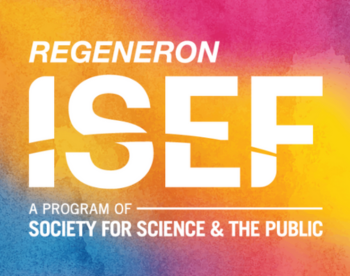20+ Best Summer Programs for High School Students
Summer school programs are academic courses offered by overseas universities during the summer break for international students. These programs are run in a school-like format, with a rich variety of subjects and a strong academic focus. At the same time, they offer vibrant extracurricular activities, allowing students to escape from the monotony of regular schoolwork. Applications usually open in December of the previous year or January of the same year, with deadlines typically falling between April and May of the same year as the program start. The courses usually take place from late June to the end of August.
When applying for summer school programs, students generally need to prepare materials such as a personal statement, letters of recommendation, transcripts, and language proficiency scores.
In fact, more than half of students admitted to top 30 universities have attended summer schools. For example, 30% of students who participated in the University of Pennsylvania LBW program were admitted to Wharton School of Business, while from 1984 to 2012, 72% of the 1,542 students who attended MIT RSI summer program were admitted to top universities like Harvard and Yale, with 4% going to Caltech and 2% to Duke.
Are Summer School Programs Worth It?
1. Develop Academic Abilities
Summer programs play a crucial role in students' academic growth. Students can select topics, courses, or academic fields they are passionate about and immerse themselves in learning for several weeks under the guidance of top professors at prestigious U.S. universities. Whether it’s the valuable experience itself, the credits earned, the positive evaluations received, or the recommendation letters from American professors, all of these become part of the student's application materials, showcasing their passion and achievements in a specific academic field.
2. Campus Visit Opportunities
While attending summer school, students can plan visits to nearby universities, participate in information sessions, and even attend on-campus interviews, allowing them to gain a more direct understanding of these institutions. At the same time, these visits give potential schools the chance to get a comprehensive impression of the student. Moreover, during summer school, students can engage in numerous local social service activities and student organization events, enriching their extracurricular lives, broadening their horizons, and enhancing their overall skills.
3. A Pre-Rehearsal for College Applications
Applying to summer programs serves as a rehearsal for college applications in the U.S. It requires applicants to submit a series of standard application materials such as transcripts, standardized test scores, recommendation letters, and personal essays. Some summer programs may even ask for additional materials like writing samples or interviews to assess students from multiple dimensions.
Through this application process, applicants can gain a clearer understanding of the support and assistance schools can offer, allowing them to approach the real college application process with more confidence. These valuable experiences lay a solid foundation for students’ future college applications.
How to Choose the Right Summer Program ?
When planning U.S. college applications, there is no absolute right or wrong choice regarding summer programs. Before deciding to attend a summer program, the first task is to clarify your motivation and goals. Generally speaking, students participate in summer programs for two main reasons:
1.Students who already have clear academic needs may use summer programs to explore a specific field in depth and enhance their competitiveness. Since high school students often have limited access to professional resources, and the school’s resources, teacher backgrounds, or research directions may not align with their needs, summer programs provide students with valuable opportunities to engage in more mature projects and gain hands-on experience, thus further enhancing their expertise.
2.Some students may not have determined their academic interests or intended major and hope to explore their interests through summer programs to decide whether they want to pursue them in college. Early experiences in summer programs allow students to test their interest in a field. If the experience proves unpleasant or unsuitable, students can adjust their direction early on, avoiding detours in future academic exploration.
Therefore, when deciding whether to attend a summer program and which type of program to choose, students should make informed decisions based on their personal circumstances and goals.
Key Points for Selecting Summer Programs
Regardless of the reason for attending, the following factors can serve as important references when filtering through summer programs:
1. Interest-Based Selection: Avoid Blind Course Choices
Many students might be influenced by the popularity of certain subjects or by their friends’ choices, overlooking whether they are genuinely interested in the course. However, summer programs typically involve intensive coursework, and if a student is not interested in the chosen course, they may struggle to achieve the expected outcomes. Particularly for students who hope to secure strong recommendation letters from professors, selecting a course that doesn’t align with their interests can make their summer program experience less fruitful.
2. Self-Assessment: Apply Realistically
Before applying to summer programs, it’s essential to understand the admission standards of different programs. As mentioned earlier, these standards often include school transcripts and standardized test scores. Students need to carefully assess whether they meet these requirements. Moreover, simply meeting the language or grade thresholds isn’t enough; having a good grasp of the program’s foundational knowledge is crucial. Otherwise, students may struggle to keep up with the professors, diminishing the value of the summer program and potentially affecting their enthusiasm for learning.
3. Quality Over Reputation: Don’t Choose Based Solely on Prestige
Many students prioritize a university’s reputation when selecting a summer program, disregarding how well the program matches their needs. It’s important to note that not all summer programs at prestigious universities are taught by the university’s professors, and the university’s ranking doesn’t necessarily reflect the quality of its summer programs. Therefore, a summer program at a renowned school might not always offer the best fit for every student. Before applying, students should thoroughly research the program to ensure it meets their academic needs and supports their personal development.
Top High-Quality Summer Programs for High School Students
Summer programs, or "summer schools," are academic and professional courses offered by overseas universities during the summer. These programs provide students with the opportunity to experience a range of academic subjects, gain credits, and participate in exciting extracurricular activities. Here, we’ll explore the four main categories of high-quality summer programs:
1. Academic Courses
More than 80% of summer programs fall into this category, offering a wide array of subjects such as business, social sciences, arts, and STEM fields. These programs allow students to get a taste of university-level coursework and gain a deeper understanding of their target majors.
Academic summer programs are divided into two types: credit and non-credit courses. Credit programs allow students to earn university credits, which can be transferred to their future college upon enrollment. Non-credit programs focus more on offering unique experiences or cultural learning.
Because of the competitive nature of academic summer programs, they often have rigorous application requirements, including standardized test scores, academic backgrounds, and language proficiency.
Examples of credit-based academic summer programs include:
- Harvard Secondary School Program
- Yale Summer Session
- Stanford Summer College
- University of Chicago Summer College
- Penn Pre-college Program
- Duke Summer College for High School Students
- Johns Hopkins Pre-College Programs
- Northwestern College Preparation Program
- Stanford High School Summer College (8-9 weeks, credit program)
- Cornell Engineering Experience (6 weeks, 6-8 credits available)
Examples of non-credit programs include:
2. Research Programs
Approximately 15% of summer programs focus on research, where students engage in hands-on research alongside professors, Ph.D. students, or other scholars. These programs are highly selective and offer exceptional value, often resulting in the production of academic papers or research reports.
Research programs typically do not award credits, but they are highly esteemed and provide students with in-depth exposure to their fields of interest. Participants may also receive strong recommendation letters from their mentors.
The most prestigious research program is MIT Research Science Institute (RSI). RSI is a 6-week program that includes a week of university-level STEM courses followed by 5 weeks of independent research. The program’s acceptance rate is extremely low, with only about 1-3% of applicants being accepted globally. RSI alumni have a high chance of being admitted to top-tier institutions like MIT, with over 90% going on to elite universities.
Other notable research programs include:
- Summer Science Program (SSP)
- UCSB Research Mentorship Program (RMP) (credit program)
- Iowa Belin-Blank Center SSTP
- The Anson L. Clark Scholars Program (CSP) (free program)
3. Practical Programs
Practical summer programs make up about 5-10% of the total, and they emphasize hands-on experience and leadership development. One of the most well-known practical programs is LaunchX, which is a startup incubator for students. Originally hosted by MIT, it is now also held at prestigious universities like Northwestern University, the University of Pennsylvania, and the University of Michigan.
LaunchX is a 4-week entrepreneurship program where students form teams to launch businesses, solve real-world challenges, and receive mentorship from industry experts. Successful projects can even receive further resources and networking opportunities.
4. Language Programs
Language summer programs are less common and focus on improving students’ English skills through immersion in speech, debate, writing, and other practical exercises. These programs often involve real-world activities to help students apply their learning in effective communication.
The entry requirements for language programs are generally lower, making them accessible to a broader range of students.
How to Apply for Summer Schools?
A school transcript, standardized test scores, recommendation letters, and personal statements are the standard application materials for most summer schools. Additionally, different summer programs may have extra requirements, such as writing samples, research work, participation in activities, awards, and even interviews.
For example, when applying to Pioneer Academics, applicants need to select a program category, submit their transcript, standardized test scores, awards, and personal statement. It’s also recommended to attend an information session to understand the program and determine whether it fits your needs, rather than just applying because of the prestige of the hosting institution.
Timeline:
1.November-December: Begin by researching and shortlisting summer schools. Investigate your target universities, including the program’s application difficulty, field of study, location, content, and dates.
2.January-February: Finalize the list of summer programs (typically applying to 2-3), and start preparing the materials. Submit your transcript, recommendation letters, standardized test scores (e.g., TOEFL 100+), resume, personal statement, and financial proof.
3.February-April: Track your application status, admissions, confirm enrollment, pay tuition, and select courses.
4.May-July: Pay fees, complete health checks, vaccines, insurance, and visa applications, and arrange airport pick-up.
5.June-August: Embark on your summer school journey!
After passing the first round of applications, there is usually an interview to assess the student’s oral communication skills. The interview may also include a writing section. Summer programs often evaluate students from multiple perspectives, making the application process similar to a mini, simulated U.S. college application process. Completing this process and receiving a summer school offer is a testament to a student's excellence.
In general, summer school applications run from November to April. Practical or research-based programs typically have a single deadline, though some offer early decision (ED) and regular decision (RD) options. Academic summer schools may have multiple rounds of applications, such as ED1, ED2, and RD, and some even offer rolling admissions.
As with U.S. college applications, those who prepare and submit their materials early gain a significant advantage:
- Ample Time to Prepare All Application Materials
Early preparation allows time for recommendation letters to highlight your strengths accurately and for refining your personal statement. - More Availability of Spots:
Each summer program has a limited number of spots per major. If you apply late, your desired major may be full, forcing you to choose a less preferred option, which can be disappointing. Particularly for business, STEM courses, and research programs, admissions are often on a first-come, first-served basis. Without early preparation, you might find yourself at a disadvantage later on.
Common Misconceptions About Summer Schools
Misconception 1: Only research-based summer schools are worth attending, while academic credit programs are less valuable.
When choosing between research-based summer schools and academic credit programs, many students tend to prefer research programs due to time and cost considerations. However, it’s essential to think about whether your skills and interests truly align with the demands of a research program and whether the summer school is related to your intended major. Besides time and cost, students’ abilities and academic goals are equally important factors.
Overall, comparing research programs and credit courses in terms of superiority is not helpful. Participating in any summer school offers valuable academic experience and helps enrich your academic background. Through summer school, students can gain practical learning experience and better clarify their goals, preparing them for future applications.
For example, while some summer schools like COSMOS may appear as optional educational programs on UC applications, participating in these programs doesn’t guarantee an increased chance of admission. In fact, past cases show students gaining admission to UCB after attending UCLA’s credit-based summer program, while others who attended COSMOS did not gain admission to UC schools. Ultimately, both research programs and credit-based summer schools are merely parts of the broader experience of studying abroad. What’s most important is how students convey the significance and value of their experiences to admissions officers.
Misconception 2: The earlier you apply to summer schools, the better.
Summer school applications require careful planning. In the early stages of your application, it’s essential to clearly identify the materials you need to prepare. Rushing to apply is not advisable—ensuring the quality of your personal statement is key.
For rolling admissions programs, where spots are limited, it is recommended to apply early. However, for programs with fixed deadlines, there is no need to rush, as all applicants will receive their decisions simultaneously.
If you’re applying to multiple programs, prioritize them. First, decide on your top-choice program, followed by your backup options. Avoid applying too early to backup programs before hearing from your dream program, as backup schools typically respond within 2-3 weeks and require a quick decision and deposit payment. This could force you to commit before hearing from your top choice.
Misconception 3: Should you always choose a prestigious summer school over independent research programs?
Not necessarily. Summer school applications are usually completed directly through the university's website, and fees are paid directly to the school. Research-based programs often have a higher application difficulty. However, independent research programs, provided by third parties, complement the U.S. summer school market and have relatively easier applications. These independent programs offer diverse choices in terms of mentor backgrounds, course formats, and research topics. Therefore, instead of focusing solely on a school’s reputation, it’s essential to evaluate the quality of the program, the qualifications of the mentors, and how well it aligns with your interests and goals.
For example, Embark, established in 2016, offers customized research training for teens with over 3,000 mentors from top U.S. universities like the Ivy League, MIT, and Caltech. Embark provides personalized one-on-one guidance, helping students develop research skills, apply them to real-world scenarios, and enhance their college applications.
Misconception 4: Should 10th graders start applying to as many summer schools as possible?
Whether 10th graders should begin applying to summer programs depends on their individual situation. The quality and relevance of a summer program matter more than the quantity.
While many U.S. summer programs start accepting 10th graders, not all should participate. For students whose English proficiency hasn’t reached the required level for some programs (e.g., TOEFL 90-100+), it may be better to participate in programs without language requirements that focus more on exploration and communication. This will lay the groundwork for applying to more competitive programs later.
On the other hand, if a 10th grader meets the language requirements, they can opt for academic credit courses to prepare for independent research or more challenging U.S. research programs in 11th grade. Ultimately, the choice of summer school should align with the student’s situation and goals, rather than blindly chasing quantity or prestige.
In conclusion, a summer school experience, especially one that involves in-depth research under the guidance of renowned mentors, will undoubtedly enhance a student’s abilities and competitiveness in U.S. college applications.
Regardless of the type of summer program, it is crucial to thoroughly review the program details on the official website, evaluate the content, and match it with personal interests and abilities. Only by selecting a program that truly fits can students fully leverage its value and significance.
If you’re unsure about which summer school to choose or which type of summer program suits you best, Embark mentors can offer a free consultation. First, they will evaluate your current situation, consider your interests, and then recommend the most suitable summer school or research project for you. The Embark Exploration Program provides customized research opportunities for high school students, allowing you to work with top mentors from renowned universities both domestically and internationally. This will not only help you showcase your talents in your chosen field but also enrich your extracurricular profile for college applications.
Furthermore, Prestigious STEM Competitions give you the opportunity to showcase your research skills and talents in front of admissions officers, helping you stand out from other applicants. To learn more, feel free to contact Embark.
4o



